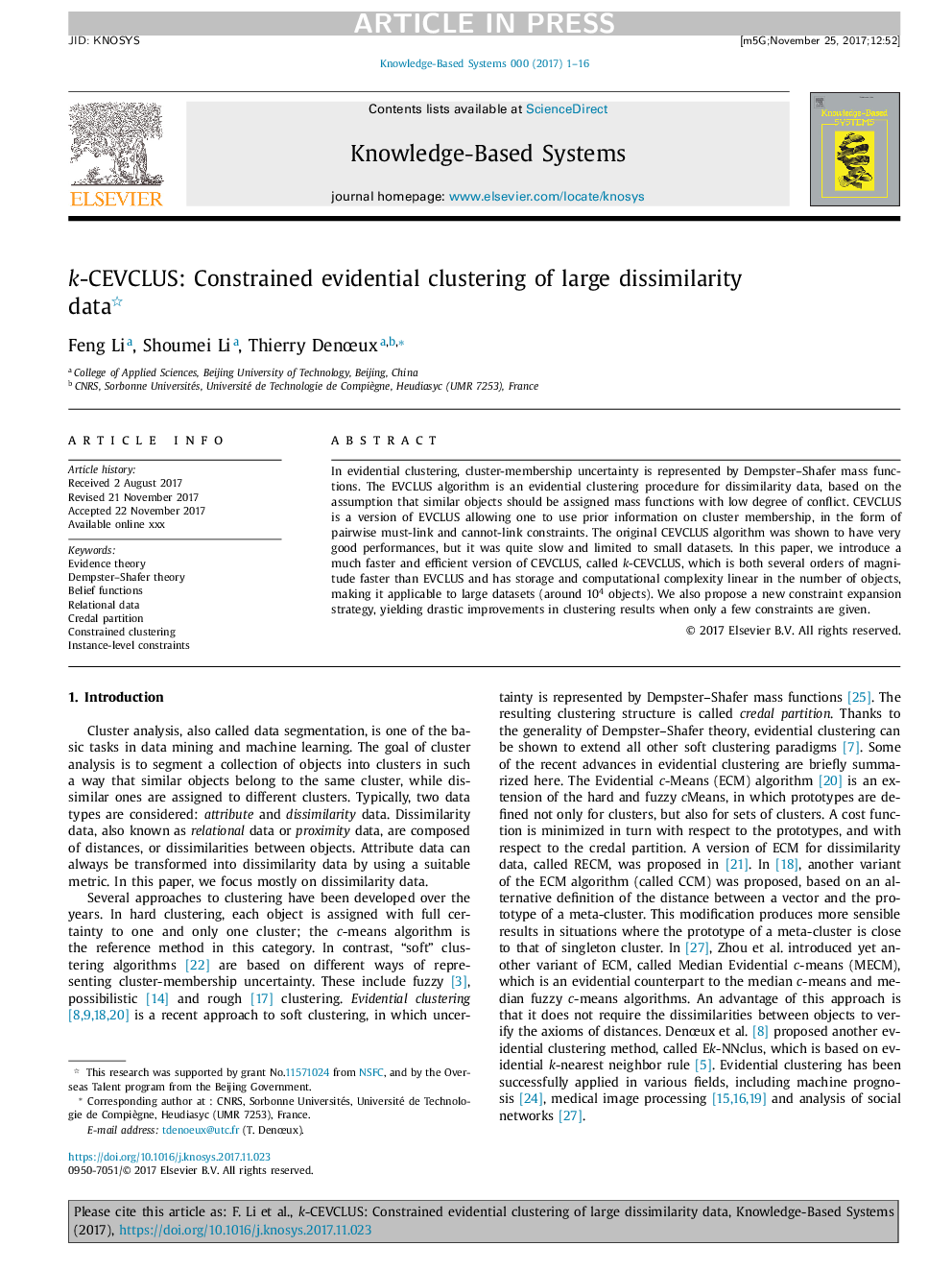| Article ID | Journal | Published Year | Pages | File Type |
|---|---|---|---|---|
| 6861849 | Knowledge-Based Systems | 2018 | 16 Pages |
Abstract
In evidential clustering, cluster-membership uncertainty is represented by Dempster-Shafer mass functions. The EVCLUS algorithm is an evidential clustering procedure for dissimilarity data, based on the assumption that similar objects should be assigned mass functions with low degree of conflict. CEVCLUS is a version of EVCLUS allowing one to use prior information on cluster membership, in the form of pairwise must-link and cannot-link constraints. The original CEVCLUS algorithm was shown to have very good performances, but it was quite slow and limited to small datasets. In this paper, we introduce a much faster and efficient version of CEVCLUS, called k-CEVCLUS, which is both several orders of magnitude faster than EVCLUS and has storage and computational complexity linear in the number of objects, making it applicable to large datasets (around 104 objects). We also propose a new constraint expansion strategy, yielding drastic improvements in clustering results when only a few constraints are given.
Keywords
Related Topics
Physical Sciences and Engineering
Computer Science
Artificial Intelligence
Authors
Feng Li, Shoumei Li, Thierry DenÅux,
